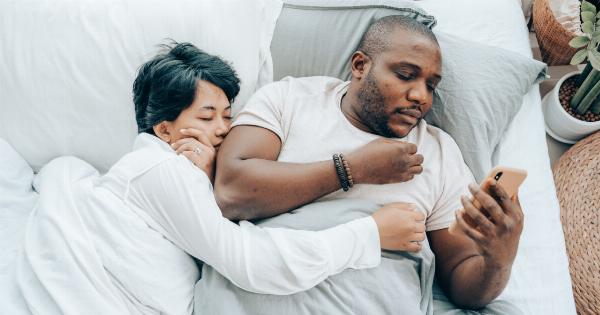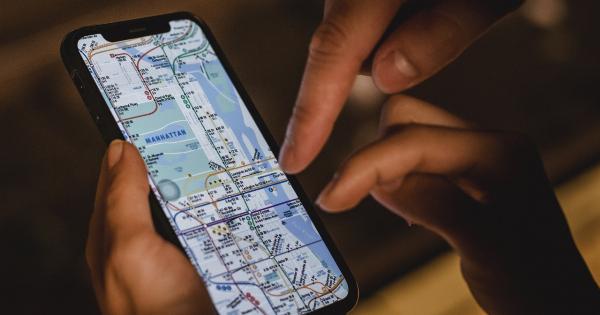In today’s digital age, mobile devices have become an integral part of our lives. From smartphones to tablets, these devices keep us connected, informed, and entertained.
However, this constant attachment to our mobile devices comes with a dark side – it disrupts our sleep. The blue light emitted by screens, addictive nature of mobile apps, and the urge to stay connected at all times can have detrimental effects on our sleep patterns, leading to a host of health problems.
In this article, we will delve into the various ways mobile devices disrupt our sleep and explore potential solutions to mitigate these effects.
The Impact of Blue Light on Sleep
One of the primary ways mobile devices disrupt our sleep is through the blue light emitted by their screens. Blue light, which has a short wavelength, can suppress the production of melatonin – the hormone responsible for regulating sleep.
When we expose ourselves to blue light, especially in the evening or before bedtime, our bodies get confused, thinking it is still daytime. This confusion leads to difficulty falling asleep and decreased sleep quality.
Mobile Apps: The Digital Rabbit Hole
Mobile apps are designed to be addictive, and this addiction is another reason why mobile devices disrupt our sleep.
Social media platforms, games, and various other apps grab our attention and keep us engaged even when we should be winding down for sleep. The constant need to check notifications and stay updated creates a sense of urgency that disturbs our sleep routine and keeps our minds active when they should be resting.
The Fear of Missing Out (FOMO)
Thanks to mobile devices, we are now constantly connected to the world around us. While this may seem advantageous, it also creates a fear of missing out (FOMO) – the anxiety of not being up to date with the latest news, trends, or social events.
This fear drives us to stay connected even when it interferes with our sleep. Late-night scrolling through social media feeds or responding to work emails has become the norm, jeopardizing our sleep patterns and overall well-being.
Sleep Disorders on the Rise
The negative impact of mobile devices on sleep is evident from the increased prevalence of sleep disorders. Conditions such as insomnia, sleep apnea, and restless leg syndrome have become more common in recent years.
Studies suggest that the excessive use of mobile devices, particularly before bedtime, is a contributing factor to these sleep disorders. As our reliance on mobile devices continues to grow, so does the risk of developing sleep-related health problems.
Tips to Mitigate the Sleep Disruption
While it may seem challenging to break free from our mobile devices, there are several steps we can take to mitigate the sleep disruption they can cause:.
1. Set a Digital Curfew
Establish a cutoff time for mobile device usage before bed. Ideally, it would be best to refrain from using your devices for at least an hour before you plan to sleep. This break will help your mind and body transition into a sleep-ready state.
2. Enable Night Mode or Blue Light Filters
Most mobile devices now offer a night mode or blue light filter feature. By enabling this setting, the amount of blue light emitted by the screen is reduced. This makes it easier for your body to produce melatonin and encourages a more restful sleep.
3. Avoid Screen Time in Bed
Reserve your bed solely for sleeping. Avoid using your mobile devices, watching TV, or working on your laptop while in bed. By associating your bed only with sleep, you strengthen the signal for relaxation and prepare your mind for rest.
4. Establish a Relaxing Bedtime Routine
Create a relaxing bedtime routine that promotes sleep. Engage in activities such as reading a book, listening to calming music, or practicing meditation to help your mind unwind before sleep.
By focusing on relaxation, you can counteract the stimulation caused by mobile devices.
5. Limit Notifications
Reduce the number of notifications you receive on your mobile devices. Unnecessary alerts can disrupt your sleep if they wake you up during the night or lead to a habitual need to check your phone.
Prioritize important notifications and disable those that are unnecessary for your well-being.
6. Keep Devices Out of Reach
Charge your mobile devices outside of your bedroom or at least away from your bed. This removes the temptation to reach for your device when you should be winding down for sleep. Out of sight, out of mind.
7. Create a Sleep-Friendly Environment
Make your bedroom a sleep-friendly space by minimizing distractions.
Invest in blackout curtains to block external light sources, use earplugs or a white noise machine to drown out any noise disturbances, and keep the room at a cool temperature for optimal sleep.
8. Prioritize Self-Care
Take care of your overall well-being by prioritizing self-care. Engage in regular exercise, practice stress management techniques like yoga or mindfulness meditation, and maintain a healthy diet.
A holistic approach to your well-being can significantly improve your sleep quality and reduce the desire to rely on mobile devices for relaxation or escape.
9. Set Boundaries
Communicate your boundaries with friends, family, and colleagues regarding your sleep schedule. Let them know the importance of uninterrupted sleep and that you may not be readily available during designated sleep hours.
Setting clear boundaries ensures that others respect your sleep routine and reduces the pressure to stay connected at all times.
10. Find Alternative Offline Activities
Discover alternative offline activities that promote relaxation and rejuvenation. Engage in hobbies such as painting, gardening, playing a musical instrument, or spending quality time with loved ones.
By finding joy in offline experiences, you can gradually reduce your dependence on mobile devices and reclaim your sleep.






























